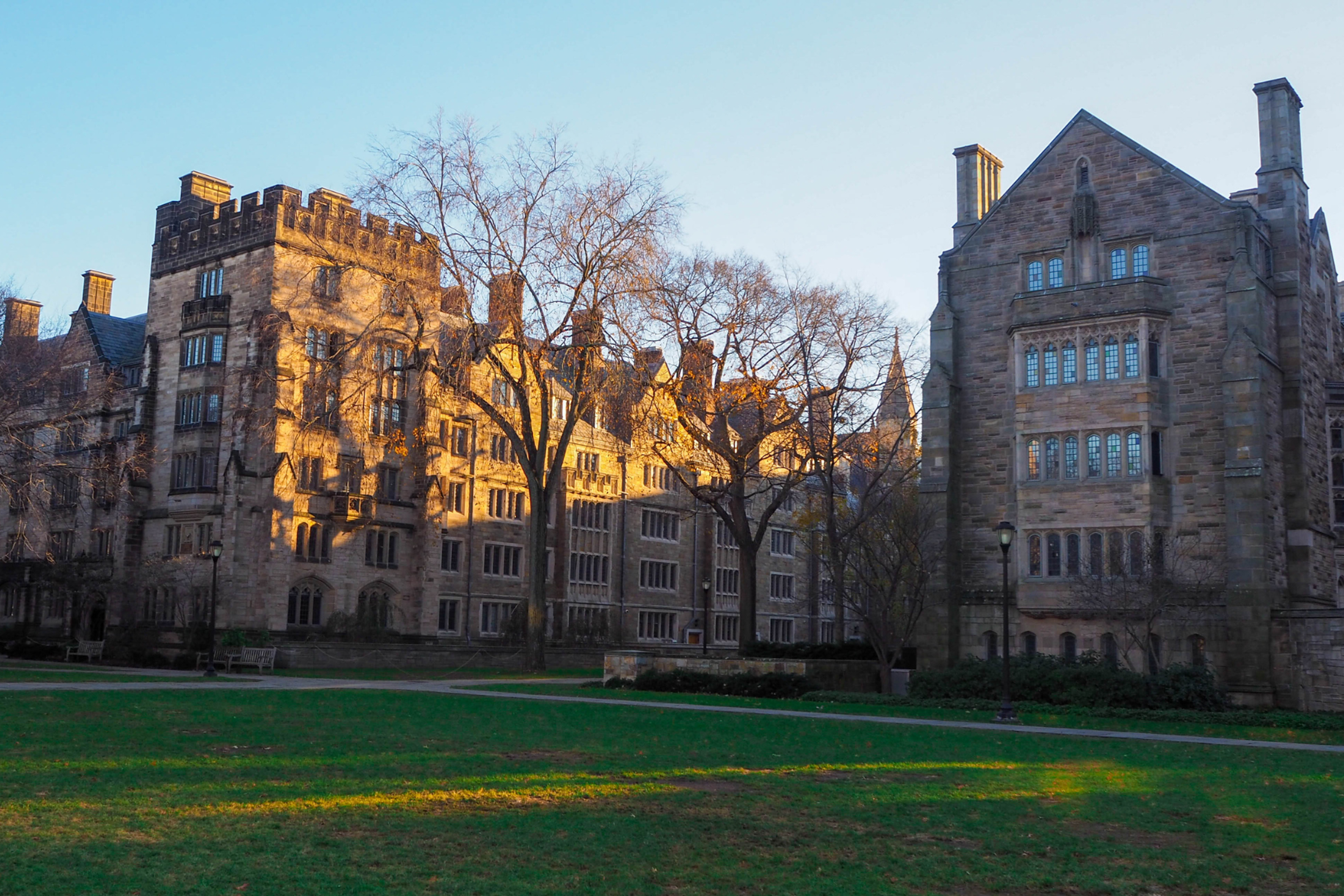
Table of Contents
Free Event

Featuring Horatiu S.
Profile Power: A LinkedIn Profile That Gets You In
Starting Tuesday, September 2
11:00 PM UTC · 45 minutes

Featuring Horatiu S.
New England is home to some of the best MBA programs in the United States. If you're considering pursuing an MBA degree, this region offers a variety of prestigious business schools that can help you achieve your career goals. In this article, we will provide an overview of the top MBA programs in New England, discuss the application process, and answer some frequently asked questions about business schools in the region. Whether you're a local resident or considering relocating to New England, this guide will help you navigate the MBA landscape and make an informed decision.
MBA Programs in New England Overview
New England is home to some of the world’s most prestigious and diverse MBA programs. From Ivy League institutions to innovative business schools, the region offers a wide range of options for aspiring business leaders.
Harvard Business School – Leadership & Global Impact
Located in Boston, Harvard Business School (HBS) consistently ranks among the top MBA programs globally. Its case study method, distinguished faculty, and global alumni network make it a hub for ambitious future leaders.
MIT Sloan School of Management – Innovation & Technology Focus
MIT Sloan stands out for its emphasis on innovation, entrepreneurship, and technology. With specialized MBA tracks in areas like operations and global business, Sloan attracts students aiming to lead in high-tech and startup environments.
Yale School of Management – Business with a Broader Purpose
Yale SOM’s integrated curriculum blends business fundamentals with societal impact. Located in New Haven, it offers joint degrees in law, public health, and environmental studies, ideal for socially conscious leaders.
Tuck School of Business at Dartmouth – Intimate & Immersive Learning
Known for its close-knit community in Hanover, New Hampshire, Tuck provides a personalized MBA experience. Small class sizes and collaborative learning foster deep connections and leadership growth.
Specialized MBA Programs in New England
Beyond the big names, New England hosts niche MBA offerings tailored to unique career paths:
- Boston University Questrom School of Business: Offers an MBA in Social Impact, focusing on sustainability and ethical leadership.
- Babson College F.W. Olin Graduate School of Business: Renowned for entrepreneurship, Babson provides mentorship, funding, and real-world startup resources through its Entrepreneurship Center.
5 Things to Know About Applying to MBA Programs in New England
The application process for MBA programs in New England can be highly competitive, with a limited number of spots available each year. Here are some key factors to consider when applying:
- Academic Credentials: Business schools typically require applicants to have a strong undergraduate academic record. A high GPA and a competitive GMAT or GRE score are often prerequisites for admission.
- Work Experience: Most MBA programs prefer candidates with relevant work experience. The number of years of work experience required can vary depending on the school and program.
- Personal Statement: A well-written personal statement can greatly enhance your chances of admission. Use this opportunity to highlight your strengths, career goals, and why you believe the specific MBA program is the right fit for you.
- Letters of Recommendation: Strong letters of recommendation from individuals who can speak to your professional abilities and potential for success in an MBA program are crucial.
- Interview: Some MBA programs may require an interview as part of the application process. Prepare for the interview by researching the school and practicing common interview questions.
What MBA Admissions Committees Look For in New England
MBA programs in New England are competitive. Top schools like Harvard, MIT, and Yale receive thousands of applications for a limited number of seats. To succeed, applicants need to understand what admissions committees value most.
Academic Performance and Test Scores Matter
Your academic background sets the foundation. A strong GPA from your undergraduate studies is essential, and most schools require GMAT or GRE scores. While minimums may vary, competitive programs look for scores that demonstrate your ability to handle intense coursework.
Work Experience Is a Key Advantage
New England MBA programs typically prefer applicants with professional experience. While some programs accept early-career candidates, most seek those with 2–5+ years of relevant work experience that shows leadership, growth, and business insight.
Personal Statements That Tell Your Story
Your personal statement is more than a summary of your resume, it’s your chance to show who you are and why you’re a great fit. Focus on your career goals, why you chose that specific school, and how the program aligns with your future plans.
Letters of Recommendation That Stand Out
Strong letters of recommendation from supervisors, mentors, or colleagues can boost your application. Choose individuals who know your strengths well and can speak to your impact, work ethic, and leadership qualities.
Be Prepared for the Interview
Many New England MBA programs require interviews. Whether in person or virtual, this is your opportunity to showcase your personality and fit. Practice articulating your goals and how the program supports them.
Expert Tip: Applying to an MBA program in New England takes planning and intention. Understand the school’s expectations, prepare early, and make every part of your application count. It’s not just about getting in, it’s about finding the right place to grow.
Top 10 MBA Programs in New England: Overview, Reasoning, and Application
- Harvard Business School: Harvard offers a rigorous two-year MBA program that emphasizes case-based learning and leadership development. Its extensive alumni network and reputation for excellence make it a top choice for aspiring business professionals.
- MIT Sloan School of Management: Known for its focus on innovation and technology, MIT Sloan offers a unique combination of rigorous coursework and real-world experiential learning opportunities.
- Yale School of Management: Yale's MBA program emphasizes the integration of business and society, preparing students to make a positive impact in nonprofit, government, and entrepreneurial ventures.
- Tuck School of Business at Dartmouth College: Tuck's small class size fosters a close-knit community and collaborative learning environment. The school's emphasis on teamwork and ethical leadership sets it apart.
- University of Connecticut School of Business: UConn's MBA program offers a flexible curriculum that can be personalized to fit students' career goals. The school's strong ties to the business community provide abundant networking opportunities.
- Boston College Carroll School of Management: Carroll's MBA program combines a rigorous curriculum with a focus on ethical leadership and social responsibility.
- Bentley University Graduate School of Business: Bentley's MBA program offers a blend of practical business skills and cutting-edge technology, preparing students for success in today's rapidly changing business landscape.
- Brandeis International Business School: With a global perspective and a strong emphasis on experiential learning, Brandeis prepares students for leadership roles in international business and finance.
- Babson College F.W. Olin Graduate School of Business: Babson is widely known for its entrepreneurship programs, offering students the necessary skills and mindset to start their own businesses.
- University of Massachusetts Amherst Isenberg School of Management: Isenberg's MBA program focuses on innovation and business analytics, equipping students with the tools to succeed in a data-driven world.
Each of these MBA programs has its own unique strengths and opportunities. It's important to research and evaluate them based on your personal career goals, interests, and desired learning environment.
The Bottom Line
New England offers some of the most respected and diverse MBA programs in the country, each with its own strengths in leadership, innovation, and global impact. Whether you're aiming for a top-tier institution like Harvard or MIT or looking for specialized training in entrepreneurship or social impact, there’s a business school in this region to match your ambitions. Success in these programs starts with a clear application strategy, strong academic and professional credentials, and a vision for your career. With the right preparation, an MBA from New England can be a powerful step toward achieving your professional goals.
Ready to Take the Next Step?
Applying to a competitive MBA program in New England isn’t easy, but you don’t have to do it alone. Working with an experienced MBA admissions coach can help you clarify your goals, refine your personal statement, and strengthen every part of your application. Whether you're targeting Harvard, MIT, Yale, or a specialized program, expert guidance can give you the edge. Schedule a consultation with an MBA admissions coach today and take the first step toward business school success.
Read these next:
- How to Ace Your MBA Interview: With Prep Questions & Answers
- Top 20 Questions to Ask During Your MBA Application Interview
- The Ultimate M7 MBA Essay Guide
- 7 MBA Essay Tips to Make You Stand Out
- The 10 Best MBA Admissions Consultants
Business School in New England: FAQs and Answers
How long does it take to complete an MBA program?
- Most full-time MBA programs in New England require two years of study. However, there are also part-time and executive MBA programs that cater to working professionals, allowing for a more flexible timeline.
Are there scholarships or financial aid available for MBA programs?
- Many MBA programs offer scholarships and financial aid options. It's important to research each school's financial aid resources and application deadlines.
Can I pursue an MBA degree while working full-time?
- Some MBA programs offer part-time or online options that allow students to balance work and studies. However, it's important to consider the time commitment and ensure that you can manage both effectively.
What career opportunities are available for MBA graduates in New England?
- New England is a hub for various industries, including finance, technology, healthcare, and entrepreneurship. MBA graduates from reputable programs in the region have access to a wide range of career opportunities and extensive professional networks.











